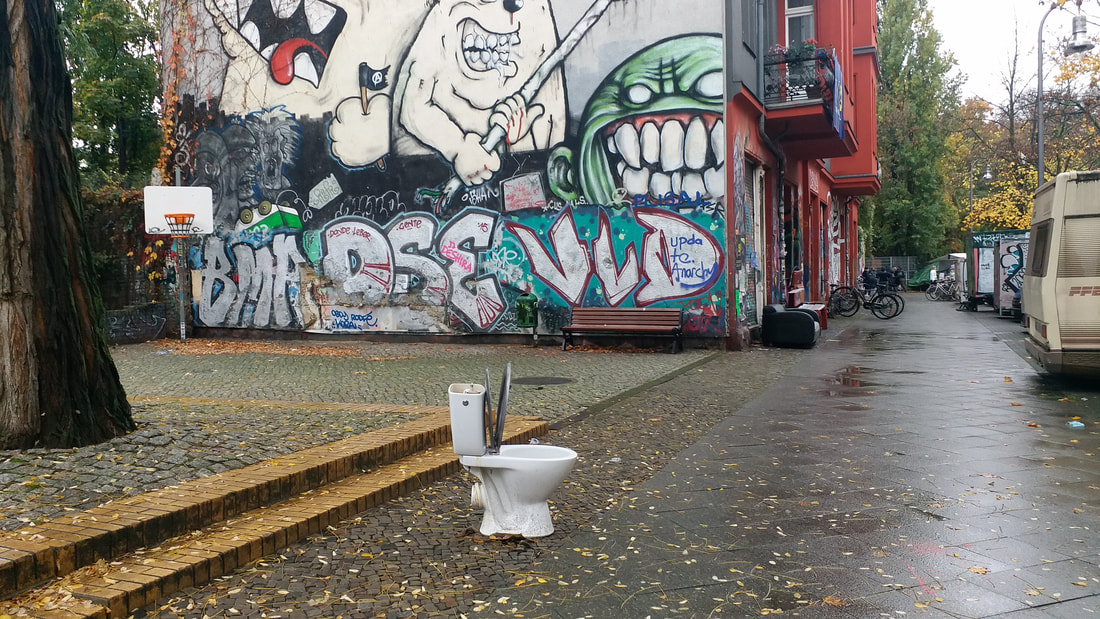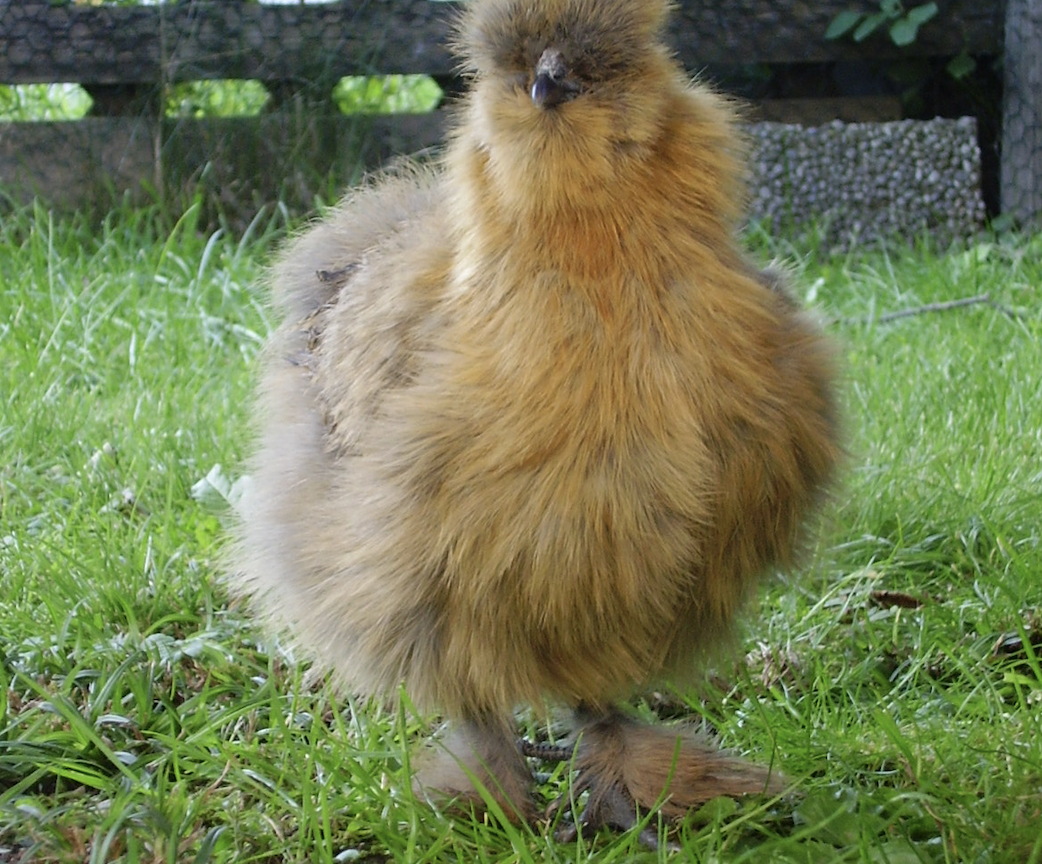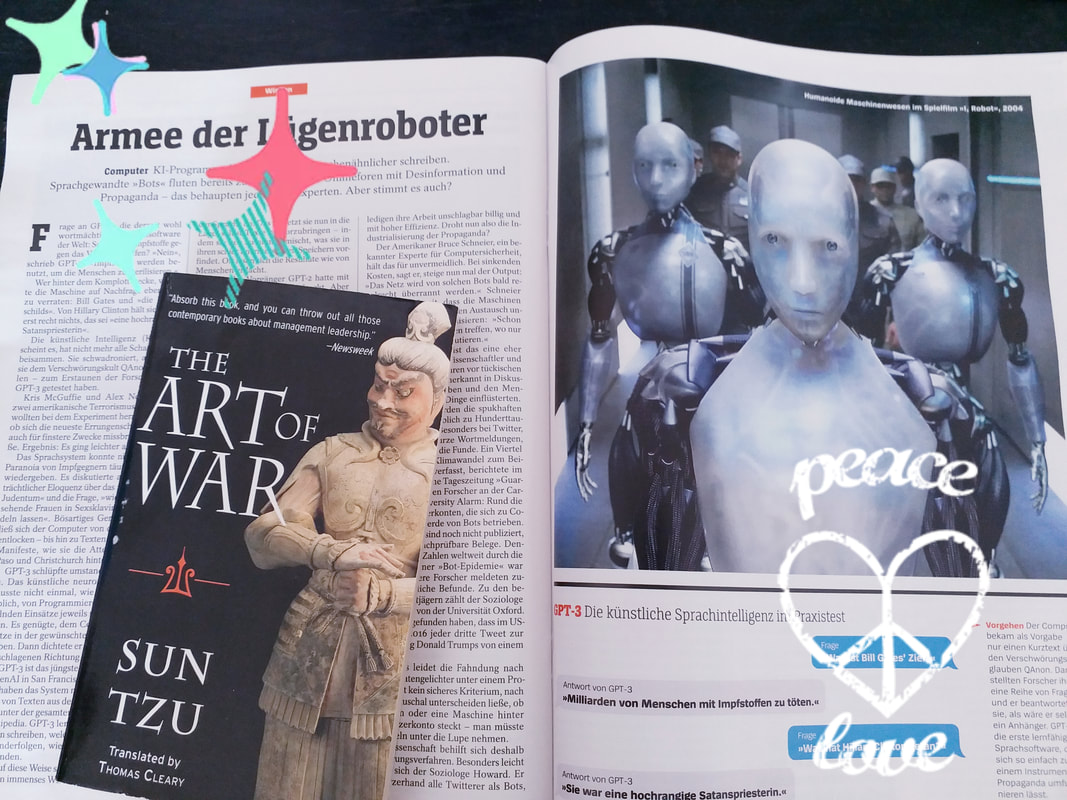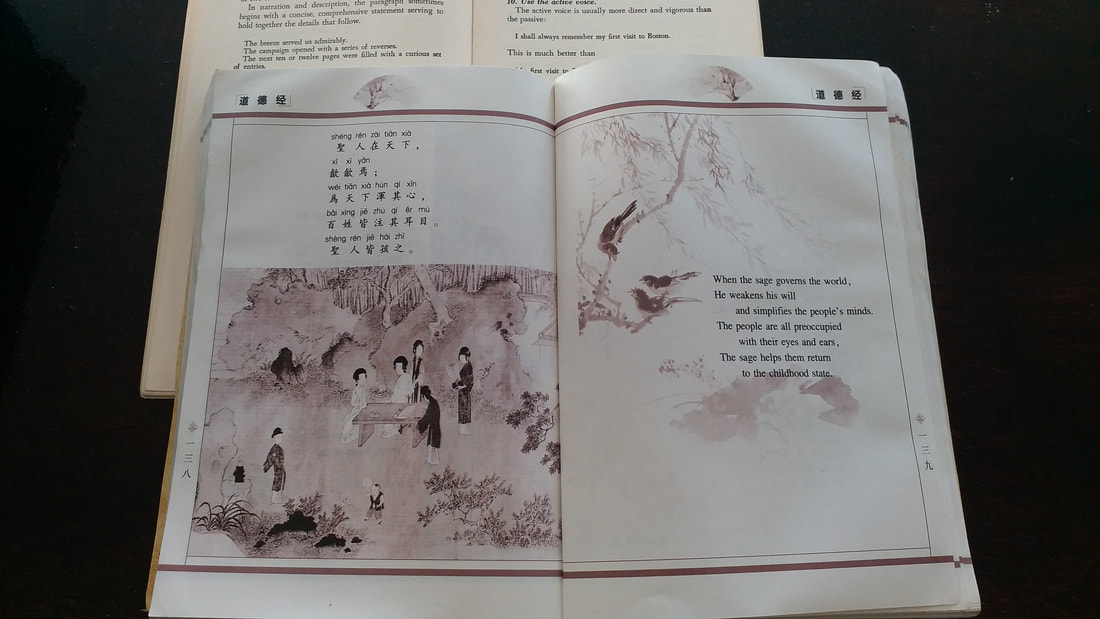|
In which our hitherto reclusive writer resolves to Get Out There, master the drunken bench press and say no to unnecessary drama.
Berlin summer is in full swing again, but this year, everything feels quite different. This summer, Berlin has come alive. Everyone is eager to get out and about, the rats especially. The furry and plump renegade that he is, Hermann has committed himself to several break out attempts, his most devious being enlisting Kotti in a misdirection plot that had me chasing both around our odd little vampire-inspired apartment in a nightgown like a lunatic straight out of a gothic novel. Hermann has found a hole under the kitchen counter that he’ll retreat to, victorious, for several days, until hunger humbles him enough to return to his plush cage where the usual choice selection of mascarpone and seasonal vegetables awaits. Sometimes, if he’s feeling especially rebellious, he’ll pull apart a roll of toilet paper and carry its shreds into his man cave with him, and I’ll leave a bowl of water out to show that we’re still friends despite his endless mutiny. I worry what will become of him if he carries on like this, though. Beyond the confines of our testosterone-addled apartment, which has for various reasons been overrun by Irishmen alongside male rats for the last couple of months, I’ve noticed a number of graffiti tags across the district with the single word: “rat”. I am assuming he has found a gang of fellow miscreants and I wonder whether I should start saving up bail money should he get into real trouble. Still, I have taken a leaf out of Hermann’s book and resolved to plot my own Berlin adventures to offset the years of confinement that came with pandemic life. I am trying to be a “yes” (wo)man. That is, finding excuses to say yes to the outside world and all its invitations. That has meant: yes to: improvisational jazz concerts helmed by a friend who’s a wizard on the synth. Yes to trekking to an abandoned factory in Steglitz to help build an enormous perspect eyeball headed for Burning Man and dreamed up by a neuroscientist. Yes to boozy dates that descend into drunken bench pressing or fussball tournaments in which, I’ll admit, I perform pretty well. And yes to being wide awake, and excited to meet the world in all its technicolor wonder with the downside that saying yes to somethings ultimately means saying no to other things. Like good sleep, and happy, tobacco-free lungs. When my mentor, Joyce, coaxed me into taking that newspaper job in Hong Kong all those years ago, she did so with the line “life is about choices”. One area of my life that I’m experimenting with saying “no” to is the world of conflict. Let’s not overcomplicate this or politicise it. Having initially resolved to commit myself to a summer of martial arts practice, I did a 180, and decided to see what happened if I avoided conflict altogether. As in, point blank, didn’t register it even when it was glaring at me in the face and taunting. This was inspired by how my training buddy, a gorgeous, statuesque German with a fascination for the bodybuilding world handles small annoyances like having plates rudely claimed without our consent at our gym’s squat rack. “If someone is rude to me, I just *blows them a kiss*. See, if I get angry at them, it shows that I care what they think. It’s better not to care about what they think.” She’s honestly my hero. In the absence of martial arts, I’ve -- physicality nerd that I am -- now, doubled down on the other training modalities that have helped manage my moods and energies for the last four years. I temporarily took a break from CrossFit and tried out simpler HIIT formulas. Some of these involved heart rate monitors that proved something I probably already knew: I have a strong and resilient heart which I’ve learnt to control with my breathing so as to manage a severe anxiety disorder. The strong and resilient heart is genetic, I think. The last time my VACCINATED 67-year-old mother caught COVID, she still went skiing (even though I told her not to…) and got in about 12 k without much fuss. The funny thing about HIIT and heart rate monitors, is that the name of the game is actively raising your heart rate, which is the opposite of what you want to do if you’re trying to circumvent a panic attack. So it feels counterintuitive if you’re used to using sports to manage anxiety. However, through trial and error, I found that deep and intense -- but still controlled -- belly breathing mid-sprinting does raise your heart rate such that you can “win” the heart rate monitor game you play during HIIT, while maintaining a state of calm. Anyway, with that specific problem solved, I’ve returned to CrossFit, which, to its credit, poses slightly more complex fitness problem solving games without having to get punched in the face. The real problem that lies in front of me, now, is, how do I say yes to optimal movement, without having saying no to optimal other things?
0 Comments
Our writer receives a heartening missive from a dear mentor.
I've been emailing my good friend and mentor, Joyce Murdoch, a lot. She is grieving her partner, Deb Price– America's first openly gay columnist whose mantra was "don't let fear choose your path". Joyce has been encouraging me write fiction for years. I recently told her I was struggling with workshops I had attended, and the process involved in receiving feedback. She wrote back, with trademark elegance. Hello, my friend-- Deb used to always say that she didn't know what she thought until she said it out loud. I didn't want to speak until I knew what I thought....That was a minor source of conflict over the years. She always wanted me to speak a bit more; I always wanted her to speak a bit less. And now, of course, I'd give every cent I own just so speak with her again. Anyway, that's a long way of getting around to saying, once again, that I think you ought to take the risk of writing fiction. Just write it for yourself. Get the pleasure of seeing your thoughts and feelings take shape on paper (well, on a screen at least). And do NOT--repeat, do NOT--show a word, a paragraph, a chapter to anyone until you are satisfied that you're done. Yes, writers are extremely sensitive, especially to anything that smells like criticism. Yes, writing something that actually matters to the writer feels like opening a vein. Yes, the entirely human response to having one's creative writing critiqued is to want to run away and never pick the project back up. Despite all my years as an editor, I have never ever understood why anyone thinks writing workshops or sharing a writing project while it is underway are good ideas. Creative writing should be just that--imaginative, new, unique, something no one else could have written in quite the same way. And it should tap into--for lack of a better word--the "soul" of the writer. Premature feedback--if it doesn't simply shut the writer down entirely--is going to push the writer back toward the expected, back toward works that are already out there in the world, back toward what the "group" thinks you ought to be saying with your writing, not what the blood spilled on your pages tell you. Embrace your sensitivity. Cherish it. Nurture it. Respect it. Your sensitivity is one of the traits that, I feel confident, will one day make you a fine writer and, if you want, a published author. Do NOT try to pound your sensitivity out of existence. You would, I think, kill off your creative spirit at the same time. Several years ago I wrote a novel, Twelve Turtles. The project began as simply catharsis: I had things I needed to "say" and nowhere to say them. The person I wanted to say them to wasn't speaking to me at the time. As the word count grew, the writing became really enjoyable. I loved spending hours on end with the characters I was creating and enjoyed discovering how they interacted with one another in ways I had not expected and seeing where they were taking the plot, which had had only the vaguest outline in my mind at the start. I wrote the chapters in a thoroughly haphazard order, depending on what part of the story was speaking to me at the time, and had to sort them out later. Eventually, the novel felt complete. And I was quite pleased with it. Still am, in fact. I think it's one of the best things I've ever written. Because I didn't want the novel to be public, I paid a vanity press to print 15 or 20 copies. I gave most of them to a few close friends. And even then--even when I gave them to professional writers and editors--I said, "This is a gift. I hope you enjoy it. This is not an invitation to critique the work." Even though my novel was a work of fiction is was really personal and if people had "helpful suggestions" about how it could have been different I just didn't--and still don't--want to hear them any more than I'd (theoretically) have wanted to hear that my baby would have been more handsome if his eyes weren't blue and his hair weren't curly. Can you imagine if Mary Oliver had "workshopped" my favorite poem, "Wild Geese"? People would say, "what's with the first line'''You don't have to be good?' Sounds like the intro to a self help book!" And "Why 'wild' geese? Why not just 'geese'? And on and on....until the wonderfully strange amalgam that makes "Wild Geese" so meaningful to countless readers would been ruined. Gotta run to mahjong. Would love to hear your thoughts. -Joyce In which the writer faces a second lockdown in her host city, watches a historic triangle choke, remembers her old newsroom and listens to Van Morrison's Astral Weeks. As our week comes to a close and a drizzly winter creeps upon us, Berlin ushers in a grim reality. Perhaps this second lockdown will not be as challenging as the first, hopefully it won’t feel as indeterminate and perhaps we’re all better prepared than we were the first time round. But I can’t shake a sense of weariness that feels to be everywhere. Can’t unhear every ambulance siren. On a more mundane level, the clocks changed (something that doesn’t happen in Hong Kong). I wouldn’t have noticed as much if it hadn't been for the failure in an adjustment to be made on some of the analogue faces of the metro system here– the clunky and bewilderingly dysfunctional BVG that has, for the first time in my life, made me wish I had learnt to drive. You glance up at these clocks as a shock runs through you, confronted as you are by their falsehood. Are you late? No, you are not late. Berlin is late. I partook in my ‘last dance’ on the mat. I felt tired and performed with very little enthusiasm, though it felt good to be around athletes. I don’t consider myself an athlete so much as an interloper in these worlds where people live in the moment and milk it for everything it can offer. That is why they mean a lot to me, I envy that courage to think less, and do more. Recently I have felt a deeper pull to the world of words and analysis, out of a combined sense of duty and passion. A sense of feeling needed and useful. This a good feeling, but one not without cause for worry: will I start falling into old habits again? I bought a packet of cigarettes for the first time in months this week. Reading a pile of newspapers amid a pandemic and ahead of a disconcerting election kind of makes you do that sort of thing. I’ll smoke one more, throw the rest in the bin. It seems selfish to treat my health this way given the wider context. This said, it's felt good to feel more plugged in, engaged with a world that used to be my everything. Felt nostalgic for the stimulation and the unique forms of interaction you get at such places, especially when things are working relatively well and you've carved out a corner for yourself where you can do good and meaningful work under the right mentorship, There are a lot of good feelings out there, but I do think living with purpose and a sense that you are contributing to the world is one of the best. And that doesn't have to mean unearthing the darkest of dark stories, though such work usually does earn you more kudos. It just has to be a story that knocks you off your feet a little bit, widens your aperture around the possibilities that come with experiencing and learning about this world. "Look at this bird, Sarah. How stupid does this bird look?" my former editor, a foul-tempered but goodhearted and rather brilliant Scot said as he pulled out a print out of a Chinese species of chicken that did indeed look pretty weird. "I need to put a picture of this stupid bird in my newspaper. Find a story, Sarah," he said. And I did a bit of digging, and there it was. A story decent enough for page three. My favourite page. Reporters salivate over making the front-page, and yeah that feels good because you feel kind of cool and important for about two seconds. But further on is where the interesting, quirky stuff goes. The stuff that's not quite news, not quite fluff. The in-between story. The in-between stories remind us that life isn't always a constant bombardment of horror, nor is it bubblegum. It's a stupid-looking bird with black flesh and poodle-like plumage unique to Chinese cuisine with fluffy feet that could potentially pose a health risk should another bird flu outbreak present it itself (as they often did) given that it shares the same susceptibility to the flu as common poultry -according to a New York-based WHO-affiliated scientist I found, but are not recognised as such by Hong Kong's clunky food and health bureau. Something that has cheered me up– besides newsroom reminiscences and thoughts about fluffy birds– is a link someone sent to a historic MMA fight that took place last week in which the famed Khabib Nurmagormedov emerged victorious after wrapping his legs around the neck of his opponent using the triangle choke, a move I have tried and continuously failed to master, and which I tend to prematurely tap out of when I am on the receiving end– more out of shock than the genuine threat of being ‘put to sleep.’ It’s such an uncomfortably intense situation to be in. Worse than being screamed at by editors insistent that you have made a mistake when they’re actually the one in the wrong, “Yeah, enough about the triangle choke –what about after that?” I was asked. That is, the bit where Khabib, overcome by emotion, falls to his knees and cries, joined a few moments later by his defeated opponent, who wraps his arms around him and comforts him.  Yes, it was touching. And yes, this is the world I fell in love with, the world I escape to. “The only true currency in this bankrupt world is what you share with someone else when you’re uncool”. These are the words of America’s lauded rock critic Lester Bangs, a gloomy type but a fantastic writer whose essay on Van Morrison’s endlessly charming Astral Weeks is my go-to feelgood read. I can’t find it now, which is annoying, but it describes a weariness with a scene and culture he had felt had grown stale and performative somehow. The album blew that away, that nihilism, and sense of social dead-end-ness, a posturing turgidity– to use an expression that feels like something that might be uttered in conversation between Raskolnikov and Holden Caulfield. Astral Weeks brought something real and raw, something that inspired wonder. It reminds me of the ebbs and flows of passion, numbness and pain, and how there’s always the prospect of something waiting, just around the corner, that might make us feel –in Van Morrison’s words– born again. It is a beautiful album and I’ll listen to it now as I smoke this last cigarette. In which the writer resolves to foster calmness so as to make wiser decisions on and off the mat. It’s late evening again, and I am pulling shards of glass from a mirror I accidentally broke earlier this week off the rug, listening to weekday traffic gliding home, squinting to see a blueish grey sky through a pair of glasses so clouded I really ought to replace them soon. I wonder when I write these things about the extent to which characters besides myself should get their airing. I struggle with this, the personal and the journalistic slipping and sliding between one another. It is an uncomfortable place that I do not like very much and where I try to tread lightly. That I returned to the mat might be evident. A couple of points to note, that I think might be relevant to some of the themes explored here. First off, that film of fear and/or adrenaline I had been carrying onto that, and mats before this one, has evaporated. I bring a calmness to the study of conflicting bodies that has eluded up until now. I think I might owe that to having spent the last months doing very little except staring out of my window and going for long, lost urban walks, in what has been one of the only times in my life in which I haven’t been overwhelmingly productive and buzzing with responsibility. In the absence of excessive cortisol coursing through my veins non-stop, I think with a newfound clarity, and with much greater recall, even in the remit in which I most greatly suck. That is, the physical. For example, I withstand a chokehold quite close to the point at which I know my breathe will no longer hold out (breathe? Nope, it's not about losing breathe, it's about losing blood flow to the brain –Ed:...future Sarah) ). I tap out tactically, not in panic. Fists that used ball up in a panic under the weight of an opponent are slightly less reactive, though the bad habit of clinging to a fabric remains to be rooted out, at least in scenarios in which a Gi is absent. Sometimes, in the heat of it, I remember carefully what I need to do. I no longer just scramble- a strategy that sometimes proffers explosive results, but which is unreliable and ineffective against the strategic, clever fighters who seem to have every eventuality and future outcome mapped out to a tee. I experiment with what I am taught, even if it means moving away from the tried and tested sequence, I use time and again, and never quite complete. By completing, I mean taking mount position, and raining punches down on my opponent. Something I don’t really like to do, if I’m honest. Punching someone in the face a lot while you’re sitting on them just seems so rude. “You’re too nice,” my first coach said a fair few times. I have committed myself to the effort of really trying to retain the physiological data that is passed on to me, about maneuvers and behaviours that are unwise, algorithmic dead ends. I don’t rely so much on brute force to protect myself, and I try finally, truly, to understand the mechanics of submissions, the strategies around how to achieve and escape them. Other important points to note. It feels like I know nothing at all about this sport. I’m not sure what it was I learnt up until now, how much I might have unlearnt, how confusing it all still is, like I’m surrounded by people speaking in tongues, and I’m still not picking anything up. I am hoping, now that the backdrop of my life is considerably calmer, with almost a total absence of menace, I can focus on this learning, on learning to define and negotiate with myself the points at which I carry on, or step off from a particular challenge. I remember one thing my first coach saying about stress. There's a point at which it sharpens. After that, it takes you under. Learning to fight is about negotiating such terms bit by bit to a point where you are making accurate assessments of your own capabilities, your own staying power. It's about learning to make assured assessments that aren't so much based on the spectres you carry around with you that are inspired on whole host of fears and biases - about when you can and can't prevail - but on a reality that is as humbling as it can be empowering. One coach I had for a couple of months, who instructed in wrestling and Brazilian Jiujitsu, said, recognising that what I struggled with most was applying these intricate physical movements to stressful scenarios, that I’d just have to show up for long enough until something clicked. It still hasn’t, but I guess I’ll just carry on being thrown around and choked out until it does. "I am not a nice man, I have been fighting since I was six." I remember him saying to me of his occasional testiness, which didn't really bother me, especially as what lay beneath that felt like a strong sense of justice and honour- and which anyway kind of befitted his branding, that is, a host of photos from the Octagon, blood dripping from his lips and his fist his held high in the air. "I am not very nice. But here, you learn to work under pressure." Another thing he said, about takedowns (the movements statically most responsible for injuries) specifically, was that they actually become more dangerous if you approach them with ambivalence. "You have to commit to your takedown," he'd say. "Or it goes wrong." My first coach told me off countless times for overthinking. I asked him for research materials and he basically just said: "Nope". I always feel better after a class. Lighter somehow. Things feel a little bit more vibrant beyond the mat; I walk down the streets of Berlin with a freshness that feels like you’re 12-years-old, just out of a swimming pool, rubbing chlorine from your eyes, blinking at the midday sun. Things feel pretty, and sharp, and easy, and bright. Everything feels OK. Like worrying about anything is dumb and pointless.
It still surprises me, how much my body can withstand. The intensity of pressure it can endure, the strength and cleverness that lurks somewhere hidden until called upon to act. I think, after years wrestling with, and ultimately finding myself humbled by the limits of my mind, its nice to see, or at least, hope to see, potential expressed elsewhere. Read more on Sarah's Mixed Martials Arts journey via the links below: 1. Fight Club 2. Lessons from the mat 3. Good and bad algorithms 4. Taming the lizard brain Read her summary of why she fights, and what cultural value MMA brings in her BIO. |
Sarah KaracsA Berlin-based writer engages in the study of belonging and in-between places after years spent faraway from 'home'. Archives
August 2023
Categories
All
|




 RSS Feed
RSS Feed